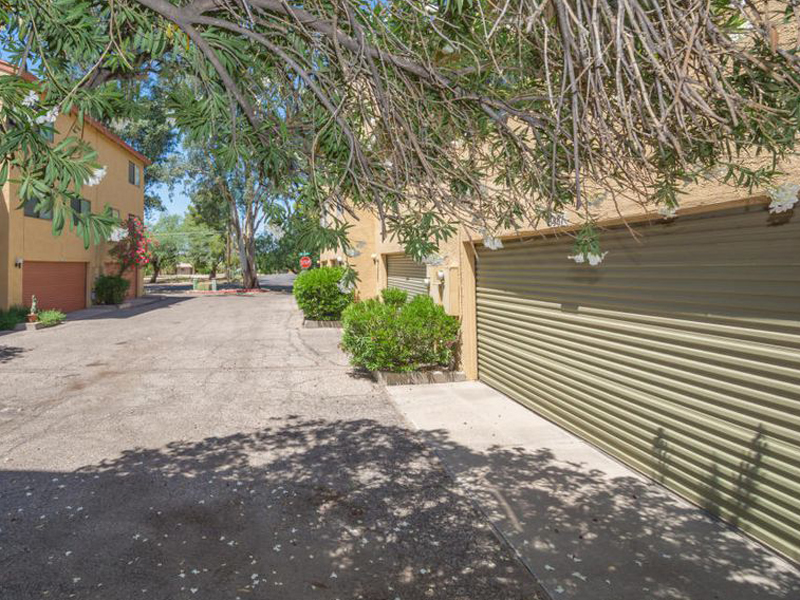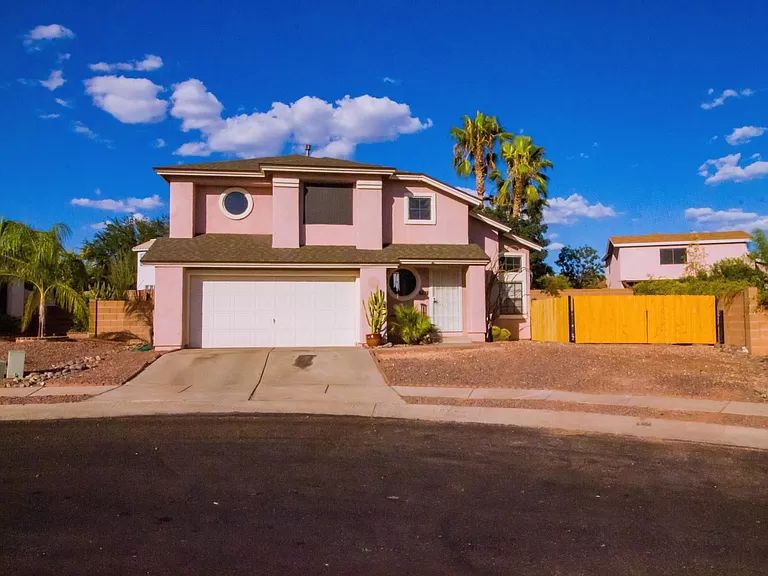Is Your Garage Door Stuck? Below's What to Do Initial
When your garage door won't open up, begin with these vital safety and security checks before attempting any kind of repair services. Initially, make certain no person is standing near the door which automobiles are clear of the opening. Try to find noticeable indications of damage like damaged panels, bent tracks, or hanging cables. If you see a snapped spring or drastically harmed parts, stop instantly and call a specialist—-- these repair services need customized tools and competence to handle safely.

Check These 6 Points Before Calling an Expert
Prior to thinking you require expensive repair services, run through this quick diagnostic list that resolves most garage door troubles:
-
Source of power: Confirm the opener is connected in and the electrical outlet is functioning
-
Remote batteries: Replace dead batteries in your push-button control
-
Hands-on lock: Inspect if a person inadvertently involved the manual lock
-
Blockages: Search for particles blocking the door's course or sensors
-
Emergency situation launch: Ensure the red emergency cord hasn't been pulled
-
Breaker: Confirm the garage circuit hasn't stumbled
These simple checks settle about 70% of garage door concerns without requiring specialist treatment.
10 Typical Factors Your Garage Door Won't Open
Recognizing why your garage door opener isn't functioning assists you pick the right option. Below are the most frequent reasons house owners encounter:
Dead remote batteries stand for the most basic fix—-- when batteries pass away, the remote can't send signals to the opener. Power failures or stumbled breakers reduced electricity to the electric motor. Broken springs protect against the door from lifting appropriately and call for prompt professional attention. Sensor misalignment causes security systems to obstruct door procedure. Track obstructions stop rollers from relocating efficiently. Electric motor overload triggers automatic shutoffs when the opener identifies resistance. Limit switch issues perplex the opener regarding door placement. Cable television damages interrupts the lifting mechanism. Weather-related issues impact door motion throughout severe temperature levels. Part wear from age gradually minimizes system performance.
Trouble # 1: Dead Push-button Control Batteries
When your wall surface switch functions however your remote doesn't, dead batteries are generally the culprit. A lot of garage door remotes make use of either 3-volt lithium or 12-volt alkaline batteries. Remove the back cover of your remote and check the battery type. Replace with fresh batteries and test the remote. If it still does not function, you may need to reprogram it to your opener. Consult your opener's handbook for specific reprogramming instructions, as the process varies by supplier.
Trouble # 2: Power Supply Issues
Garage door power troubles often originate from loose connections or stumbled circuits. Examine that the opener is firmly connected into its outlet—-- vibration can loosen links in time. Evaluate the electrical outlet with one more tool to confirm it's working. Examine your home's breaker box for stumbled circuits, specifically if you have actually experienced tornados or power fluctuations. GFCI electrical outlets might have stumbled and require resetting. If quick fixes for garage door not closing properly the opener has power however will not react, the issue likely lies in other places in the system.
Trouble # 3: Broken or Damaged Springs
Busted garage door springs are amongst one of the most dangerous parts to handle. If you listen to a loud bang from your garage or notice the door feels incredibly heavy when trying to raise manually, a spring has actually likely broken. Torsion springtimes run horizontally over the door, while expansion springs sit on either side. Never ever attempt spring repair services yourself—-- these components keep tremendous tension that can trigger serious injury or death. Expert replacement normally costs $150-$300 but guarantees your safety.
Trouble # 4: Obstructed Safety And Security Sensing Units
Modern garage doors include safety and security sensors that protect against closure when objects are spotted. These sensing units can quit the door from opening if they're filthy, misaligned, or obstructed by debris. Tidy sensing unit lenses with a soft fabric and ensure absolutely nothing obstructs the unnoticeable beam of light in between them. Check that sensing units are properly aligned—-- the majority of have indicator lights that reveal connection condition. Sensing unit issues often settle with easy cleansing and adjustment.
Issue # 5: Track Obstructions or Damage
Garage door tracks overview rollers as the door goes up and down. Dirt, particles, old grease, or little objects can jam the system. Inspect tracks visually and get rid of any type of blockages with a brush or towel. Look for damages, bends, or warping that can restrain smooth operation. Small track changes are feasible for useful house owners, however considerable damages requires professional repair work to stop further problems or safety and security risks.
Problem # 6: Garage Door Opener Motor Issues
When the garage door motor runs but the door doesn't move, a number of issues could be liable. The motor might be overwhelmed and shutting off as a precaution. Equipment wear, especially in older systems, can stop correct procedure. Chain or belt drive troubles influence power transmission. If you listen to unusual grinding, clicking, or humming noises, stop making use of the opener quickly. Electric motor repair services frequently set you back more than replacement, especially for devices over ten years old.
Detailed DIY Troubleshooting Guide
Follow this systematic strategy to garage door troubleshooting while focusing on security throughout the process:
Step 1: Test the wall button first. If it works yet the remote doesn't, focus on remote issues. If neither jobs, inspect power supply.
Step 2: Check out the hand-operated launch cord. If it's been pulled, the opener is disengaged from the door. Push the trolley back to reconnect.
Step 3: Manually test the door by disengaging the opener and trying to lift the door by hand. It must move efficiently and stay in area when half-open.
Step 4: Evaluate noticeable components for damages, paying unique interest to springtimes, cords, and tracks.
Step 5: Inspect all safety and security features including sensing units, limit buttons, and auto-reverse functions.
Action 6: Test various controls (remote, wall surface switch, keypad) to isolate the trouble resource.
Constantly put on safety glasses and work handwear covers when executing examinations, and never ever effort repair work on springtimes or high-tension components.
When to Call a Specialist vs. do it yourself Solutions

Knowing when to call a garage door specialist versus trying do it yourself repairs shields both your safety and security and your budget. Manage these issues on your own: dead remote batteries, power supply issues, small track cleansing, sensor cleansing and alignment, and fundamental lubrication.
Never ever attempt these repair work yourself: springtime replacement or change, wire repair services, significant track realignment, electric wiring problems, opener motor replacement, or any kind of fixing entailing high-tension elements. Professional professionals have actually specialized tools, training, and insurance policy to manage dangerous repair work safely.
Take into consideration repair work expenses versus substitute costs, especially for doors over 15 years of ages. Modern garage doors supply much better safety and security attributes, power efficiency, and reliability than older designs.
Emergency Garage Door Solutions
When you're stuck to a garage door that won't open up and require instant access, adhere to these emergency situation treatments:
Manual Procedure: Draw the red emergency release cable to disengage the opener. This permits hand-operated operation but calls for appropriate strategy to prevent injury. Raise the door gradually and evenly, making use of leg muscle mass instead of your back. Most household doors evaluate 100-150 extra pounds, making them convenient for a lot of grownups.
Short-term Repairs: If the door opens up manually but will not stay up, prop it open with sawhorses or clamps—-- never use your body or lorries as supports. For doors that will not close completely, make sure the opening is secured if you have to leave.
Emergency situation Solution: Many garage door business offer 24/7 emergency service for situations involving safety and security issues, caught lorries, or complete system failings. While much more expensive than routine service phone calls, emergency repair work provide instant services when needed most.
Safety and security Caution: What NOT to Do
Garage door safety requires understanding unsafe repair services that must never ever be tried by property owners:
Never try to repair springtimes—-- they store enough power to create deadly injuries when they snap or are improperly managed. Do not compel a stuck door—-- this can harm the opener, tracks, or door panels, developing more expensive troubles. Avoid bypassing safety and security features—-- sensing units and auto-reverse devices stop major injuries and home damage.
Don't disregard strange noises—-- grinding, scratching, or banging audios suggest problems that aggravate over time. Never make use of the door if cable televisions are torn or broken—-- the door can drop all of a sudden. Don't try electrical repair work unless you're a qualified electrical contractor—-- garage door openers make use of both 120V family current and low-voltage control circuits.

Preventive Maintenance to Stay Clear Of Future Problems
Regular garage door upkeep protects against most common problems and prolongs system lifespan considerably:
Month-to-month Tasks: Aesthetic examination of all parts, testing auto-reverse security attributes, inspecting and tightening up equipment, and cleaning tracks and sensors.
Quarterly Jobs: Oiling all moving get rid of proper garage door lubricating substance, testing guidebook operation, and inspecting climate securing.
Yearly Tasks: Expert assessment and tune-up, spring change if required, and opener upkeep consisting of belt or chain modification.
Seasonal Tasks: Getting ready for weather extremes, checking insulation, and readjusting opener settings for temperature level adjustments.
Consistent maintenance costs far less than emergency situation repairs and ensures dependable operation year-round.
Garage Door Will Not Open Up FAQs
Why won't my garage door open with the remote yet collaborates with the wall surface button?
This generally indicates dead remote batteries, signal disturbance, or the demand to reprogram the remote. Check batteries first, after that consult your opener guidebook for reprogramming guidelines.
Can I manually open my garage door if the power is out?
Yes, draw the red emergency situation launch cable to disengage the opener, then raise the door by hand. Be planned for the door's full weight and lift with correct technique to avoid injury.
How do I understand if my garage door spring is broken?
Signs consist of a loud bang from the garage, the door feeling incredibly heavy when raising manually, noticeable spaces in the spring coils, or the door only opening up a few inches prior to stopping.
Is it risk-free to utilize my garage door if it will not open right?
No, partial operation shows mechanical problems that could get worse suddenly. Stop utilizing the door and have it inspected by a professional to avoid additional damage or injury.
What should I do if my garage door opens but won't shut?
Examine safety sensors for obstructions or misalignment, check out the tracks for debris, and test the auto-reverse feature. If these do not fix the issue, get in touch with an expert.
How much does it set you back to fix a garage door that will not open?
Expenses differ widely depending upon the issue: battery replacement ($5-$10), specialist diagnosis ($50-$100), springtime substitute ($150-$300), or opener replacement ($200-$500).
Can weather affect my garage door's ability to open up?
Yes, severe cold can enlarge lubricating substances and affect metal components, while heat can create expansion issues. Most troubles fix as temperature levels stabilize, yet relentless issues may need expert interest.
Why does my garage door open a few inches then quit?
This normally indicates broken springtimes, limit button problems, or track blockages. The opener's safety features quit procedure when resistance is detected, preventing damage to the motor or door.
Obtain Professional Aid for Complex Problems
When DIY troubleshooting doesn't resolve your garage door issues, professional service technicians give the expertise and devices required for secure, enduring repair work. Qualified experts diagnose issues accurately, make use of manufacturer-approved components, and offer service warranties on their job.
Professional services consist of: extensive system evaluations, springtime and cable television replacement, opener fixing and replacement, track alignment and substitute, electrical troubleshooting, and emergency situation solution phone calls.
What to expect: in advance prices, certified and insured professionals, same-day solution for many repair services, and follow-up maintenance suggestions.
Most garage door companies offer complimentary quotes for major repairs and can give immediate solutions for immediate issues influencing home protection or lorry gain access to.
Obtaining Your Garage Door Working Again
A garage door that won't open up does not have to wreck your day or damage your budget plan. Beginning with straightforward troubleshooting actions like checking power, replacing batteries, and checking out for evident blockages. Several problems have fast do it yourself remedies that recover typical procedure within minutes.
Nevertheless, recognize when expert aid is needed—-- specifically for spring-related problems, electric issues, or complicated mechanical failures. Trying unsafe repair services yourself runs the risk of significant injury and commonly produces more pricey problems.
Routine upkeep avoids most garage door issues and guarantees trusted procedure for many years ahead. When troubles do happen, resolve them promptly to stay clear of more pricey repairs and maintain your home's protection and ease. Whether you need a simple battery substitute or complete system overhaul, options exist to get your garage door working efficiently once again.
Eddie's Garage Door Service
5505 N La Canada Dr, Tucson, AZ 85704
(520) 965-8259
www.EddiesGarageDoorService.com